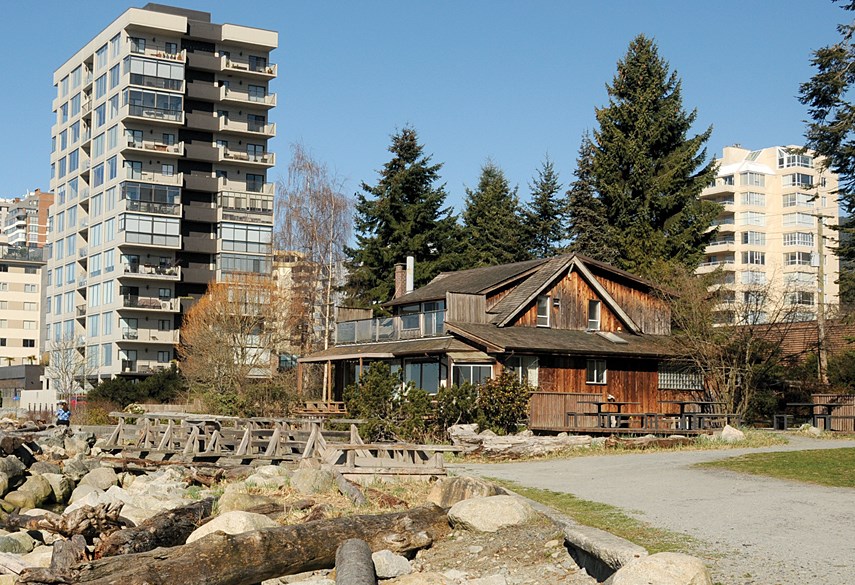This article has been amended to clarify the differences in municipal tax rates.
To assuage infrastructure decay, property owners must pay.
The owner of a $2.5-million West Vancouver home will likely shell out an extra $236 this year, bringing the median property tax bill up 4.78 per cent for a total of $5,182.
The increase, which was supported unanimously at a March 11 meeting, includes a 1.76 per cent asset levy hike; generating approximately $1.5 million toward maintaining decaying West Vancouver assets.
That sum may not be enough, according to Coun. Sharon Thompson, who put forward an unsuccessful motion to raise the asset levy from 1.76 to 2.5 per cent.
“We’ve got to start taking care of our infrastructure,” Thompson said.
The increase was supported by Coun. Craig Cameron, who suggested topping up municipal coffers to cover the cost of decaying infrastructure was a better option than “pushing the debt” to future taxpayers.
Thompson’s motion was defeated 5-2, with Gambioli advising council not to entertain further tax hikes until 2020.
“Many residents are going to get really slammed by the school tax and possibly the vacancy tax this year,” she said. “I don’t think adding fuel to the fire is super-wise.”
Mayor Mary-Ann Booth concurred. “It’s almost infinite the amount of money we could spend,” she said.
Following final approval of the tax hike, the district’s asset levy reserve is projected to climb to $14.5 million. That cash should provide: “sufficient basic funding . . . to maintain the current suite of assets at an optimal level,” according to a staff report.
Noting there has been “under-investment” in the past, more money will be required, West Vancouver’s director of financial services Isabel Gordon told council.
“This ($14.5 million) is only enough money if the assets already are at optimal level,” she said. “That’s not the case and so we will require some greater investment to bring the assets up to the standard.”
While he didn’t support Thompson’s motion, Coun. Marcus Wong broached the idea of a higher asset levy with Gordon.
“Should we not have a higher asset levy so that we cannot just maintain our assets but make them awesome, for lack of a better descriptor?”
The asset levy is an incremental solution, Gordon told council, explaining there is “almost no upper limit.”
In 2016, the gap between the amount of money provided for infrastructure and the amount needed for “optimal maintenance” of that infrastructure was $6.5 million annually. The introduction of an annual asset levy has reduced that shortfall. However, ongoing funding “is not the whole story,” according to a district staff report.
“This is all coming to a head, basically, in the next two to three years,” Gordon told council.
Council will need to consider replacing, renovating or ridding themselves of several facilities over the next few years, according to the report.
Staff initially identified $29 million as the price of repair and renewal needs for at-risk infrastructure. However, “in order to balance the budget with the funds available,” the district postponed $8.5 million in needed investment, according to the report.
The $2-million restoration of the Navvy Jack Nature House, $2 million worth of improvements at the Ferry Building Gallery, a ramp leading to the Memorial Park cenotaph and new stairs at Garrow Bay’s east trail are all on the district’s wish list. For Coun. Peter Lambur, a $706,000 allocation to the West Vancouver library should be at the top of that list.
That money is earmarked to upgrade the library’s cooling and heating systems, replace its water lines and install efficient lighting, according to director of library services Jenny Benedict.
Despite Lambur’s objection, council voted 6-1 to defer funding the library project until a more thorough analysis is conducted.
For a median household, the 2019 asset levy represents $54 – a $5 increase from 2018. The operational levy is slated to cost a median household $3,151, up $68 from 2018. Taxpayers are set to get a small break on solid waste rates, which are slated to fall $2 to $241 for 2019. The biggest tax hike is for sanitary and storm sewer rates, which are up 11 per cent to $1,041.
Council is slated to vote on the five-year financial plan April 1.
Excluding utility fees, taxes are set to rise 4.25 per cent in the City of North Vancouver and three per cent in the District of North Vancouver. Not counting utility fees, West Vancouver's tax increase would be 3.95 per cent.



